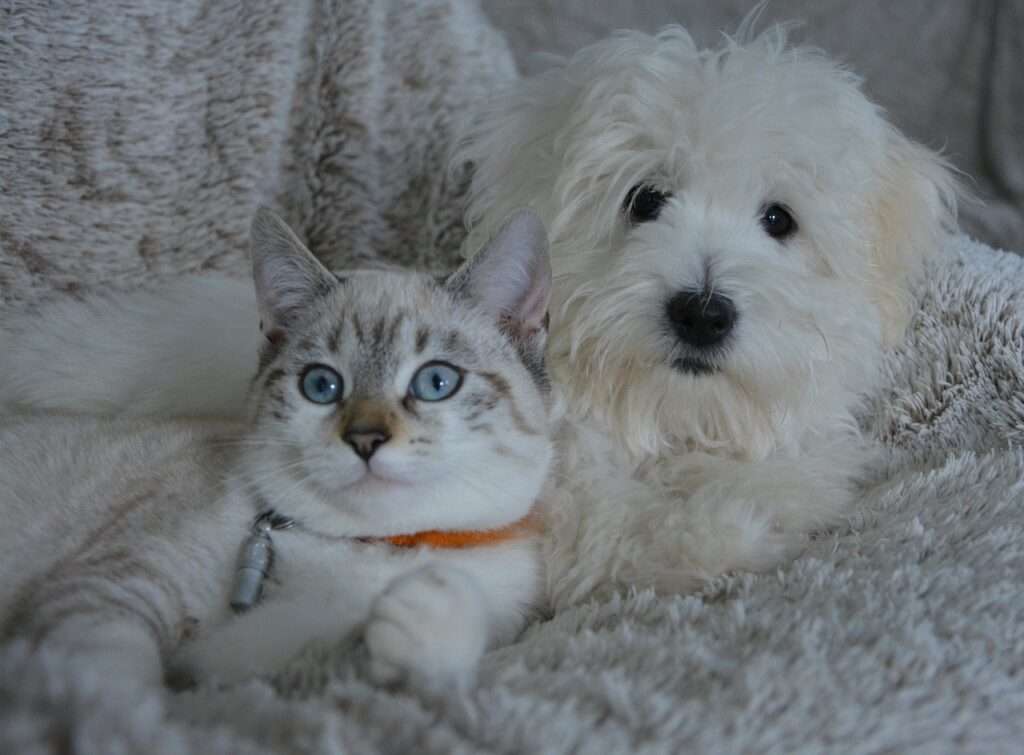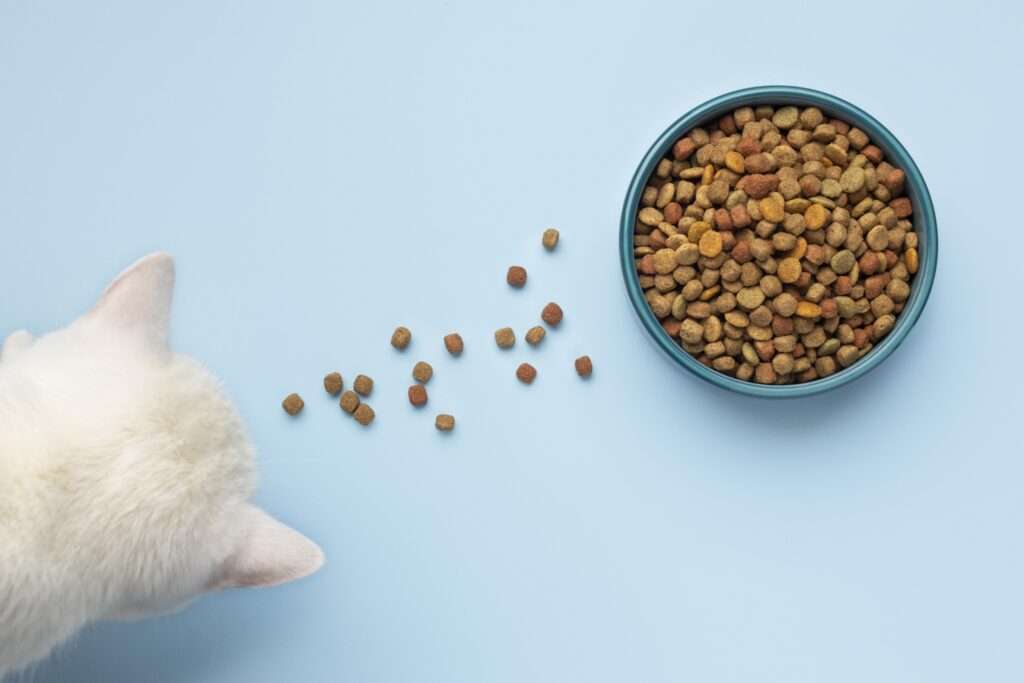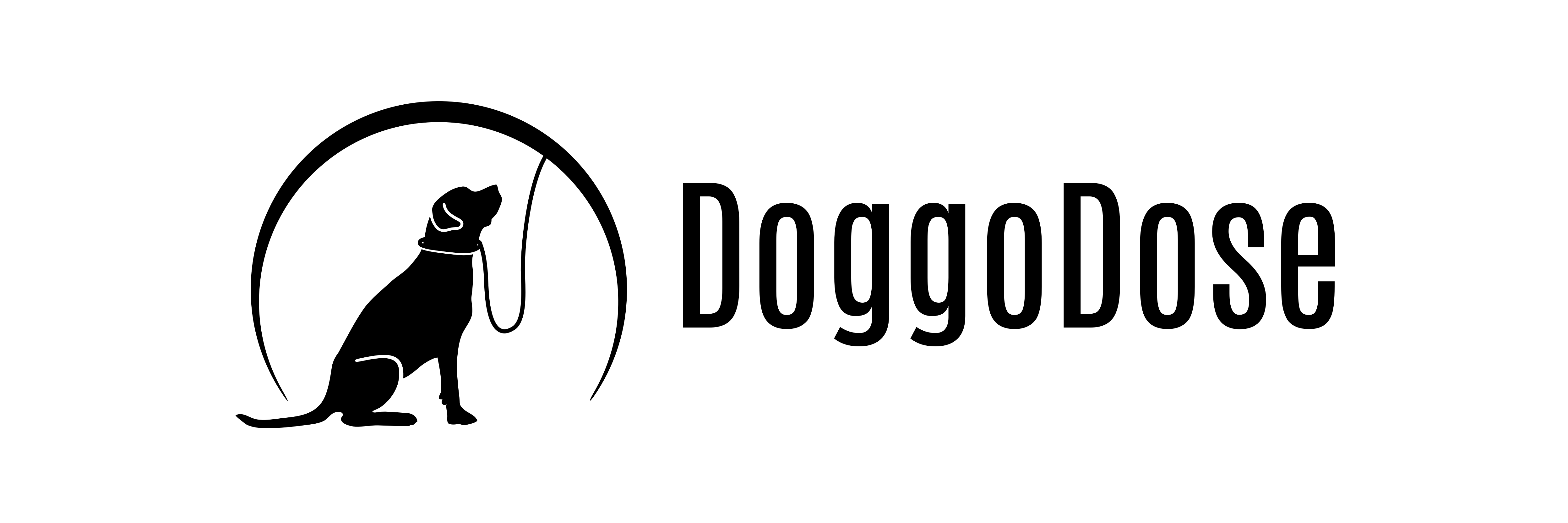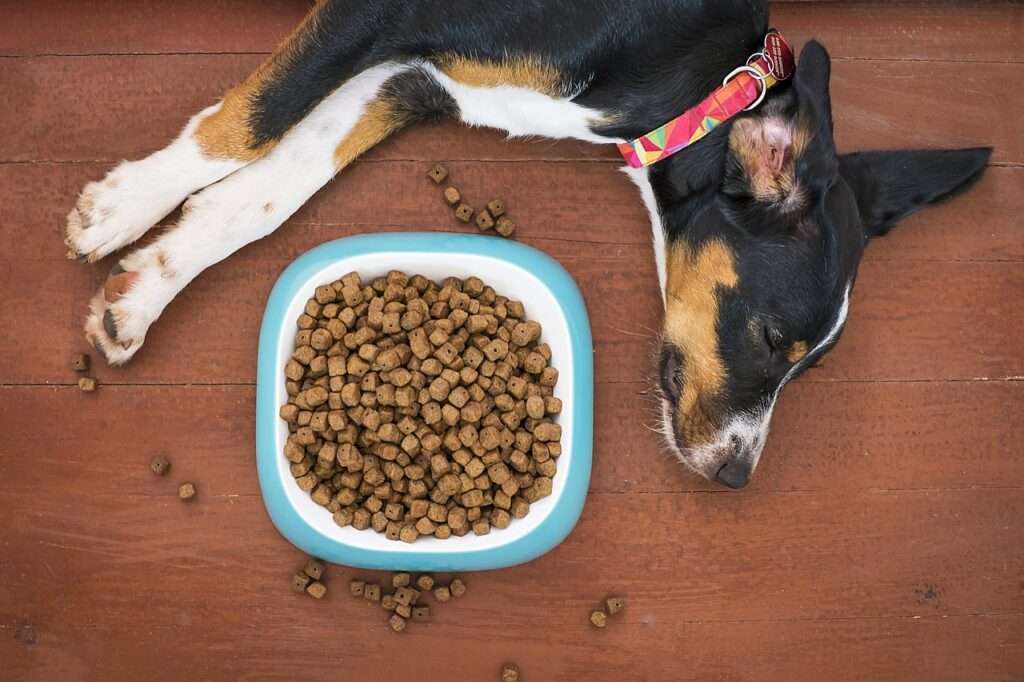INTRODUCTION:
In the intricate web of pet care, dietary considerations stand as pillars of health and vitality for our beloved furry companions. Among the many questions that pet owners grapple with is whether feeding cat food to dogs poses any risks. This article embarks on a comprehensive exploration of the contentious topic, delving into the nutritional disparities between cat and dog food, the potential consequences of cross-species feeding, and best practices for maintaining the optimal health of both cats and dogs.
Understanding Canine and Feline Nutrition:
To grasp the implications of feeding cat food to dogs, it’s essential to comprehend the fundamental differences in the nutritional requirements of these two species. Dogs are classified as omnivores, capable of deriving nutrients from a diverse range of sources, including both plant and animal-based ingredients. In contrast, cats are obligate carnivores, meaning their diet necessitates a high proportion of animal-derived proteins and fats to meet their unique nutritional needs. Cats require specific nutrients such as taurine, arachidonic acid, and vitamin A, which are crucial for their overall health and cannot be synthesized in sufficient quantities within their bodies.

Disparities Between Cat and Dog Food:
Cat food formulations are meticulously crafted to cater to the nutritional demands of felines, emphasizing animal proteins and fats while minimizing the inclusion of carbohydrates and plant-based ingredients. On the other hand, dog food formulations are designed to provide a balanced diet that accommodates the omnivorous nature of dogs, incorporating a broader spectrum of nutrients from both animal and plant sources. Cat food typically contains higher levels of protein and fat, as well as essential nutrients like taurine, which may be present in insufficient quantities in dog food.

Dangers that may occur to dogs when eating cat food:
While occasional indulgence in cat food may seem harmless, prolonged consumption can lead to various health concerns for dogs:
1/ Nutritional Imbalance:
Cat food lacks certain nutrients essential for canine health, such as adequate levels of carbohydrates, fiber, and specific vitamins and minerals. Dogs may experience nutritional deficiencies if fed cat food exclusively, leading to adverse health effects over time.
2/ Digestive Upset:
The high protein and fat content of cat food may overwhelm the digestive system of dogs, leading to gastrointestinal distress, including vomiting, diarrhea, and pancreatitis. Additionally, some dogs may be sensitive to certain ingredients commonly found in cat food, such as certain types of protein or grains.
3/ Obesity and Weight Management Issues:
The calorie-dense nature of cat food combined with its high-fat content can predispose dogs to weight gain and obesity if consumed regularly. Obesity in dogs poses significant health risks, including joint problems, diabetes, and cardiovascular disease.
4/ Urinary Health Concerns:
Cat food is formulated to maintain feline urinary health, often containing specific ingredients or additives to prevent urinary tract issues common in cats. Feeding cat food to dogs may disrupt the urinary pH balance and increase the risk of urinary stones or infections.
5/ Behavioral Changes:
Dogs fed cat food may develop behavioral issues related to food guarding or possessiveness, as they may become accustomed to the higher palatability and richness of cat food compared to their own.
Best Practices for Feeding Cats and Dogs:
To mitigate the risks associated with feeding cat food to dogs and ensure the optimal health and well-being of both pets, pet owners are encouraged to adopt the following best practices:
1/ Species-Appropriate Diets:
Provide dogs with nutritionally balanced dog food formulated to meet their specific dietary requirements. Similarly, feed cats high-quality cat food tailored to their obligate carnivore needs. Avoid interchanging or sharing food between cats and dogs, as it may lead to nutritional imbalances.
2/ Supervised Meal Times:
Monitor meal times to ensure that each pet consumes their designated food without interference from others. Supervision also allows pet owners to observe any adverse reactions or digestive issues that may arise from feeding inappropriate food.
3/ Portion Control:
Follow recommended feeding guidelines provided by pet food manufacturers and veterinarians to determine appropriate portion sizes for dogs. Avoid overfeeding or free-feeding, as it can contribute to obesity and other health problems.
4/ Regular Veterinary Check-ups:
Schedule routine veterinary examinations for both cats and dogs to monitor their overall health and address any dietary concerns or health issues promptly. Veterinarians can offer tailored dietary recommendations based on individual pet needs and guide on maintaining optimal health.
5/ Education and Awareness:
Stay informed about the nutritional requirements of cats and dogs and seek guidance from reputable sources, including veterinarians and pet nutrition experts. Educate yourself about the potential risks of feeding inappropriate food to pets and make informed decisions regarding their diet and nutrition.
CONCLUSION:
While the allure of sharing a meal between furry companions may be tempting, the practice of feeding cat food to dogs carries significant risks and potential consequences for canine health. Understanding the distinct nutritional needs of cats and dogs is paramount for responsible pet ownership. By providing species-appropriate diets, adhering to best feeding practices, and prioritizing regular veterinary care, pet owners can safeguard the well-being of their cherished companions and ensure they thrive for years to come. Let us embrace a holistic approach to pet care, rooted in knowledge, compassion, and a commitment to promoting the optimal health and happiness of our beloved feline and canine friends.


